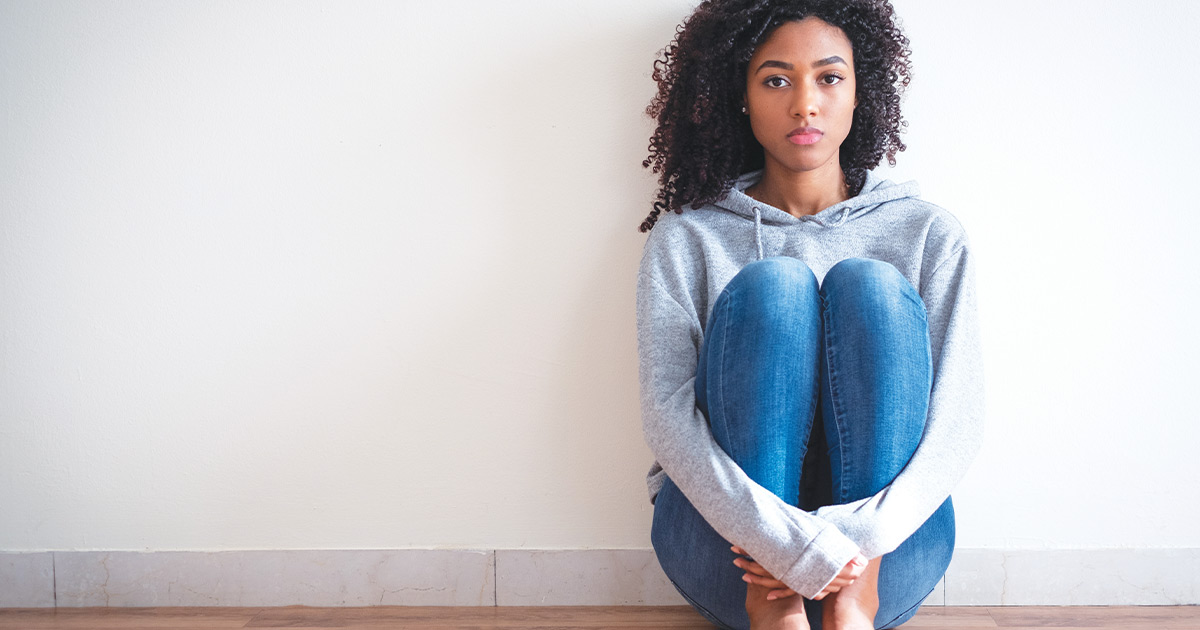The pandemic. We're all sick of it. But many of us are also literally sick—with mental health issues compounded by more than a year of isolation, disappointment and pivoting. Kids are no exception. Almost half of parents surveyed (with teens aged 13 – 18) in the 2021 C.S. Mott Children's Hospital National Poll on Children's Health, noticed a new or worsening mental health condition.
Unfortunately, the idea of struggling with mental health issues still holds a stigma for some kids. But seeking professional help is simply another way to learn important life skills, said Mario Franciscotty, MA, LPC, and Executive Director of Wellspring Counseling in Grand Rapids.
"People seek therapy for a number of reasons," he explained. They might need help working through long-held beliefs or tools to navigate difficult situations. Some people are dealing with depression and anxiety; others need a safe place to vent. "It's somewhere to go and talk with someone who's trained to help you with what's going on in your life."
Younger children are hurting, too, and it's often challenging for them to articulate their feelings. "There are therapies for each age group," reassured Franciscotty. Play therapy and art therapy, for example, are great ways to help kids tell their story.
No parent wants to think about their child suffering. What's a worried parent to do?
1. First, take a deep breath. Seriously. Research shows that conscious breathwork helps oxygenate the brain and has a positive impact on mental health. At the very least, it can help you center yourself before tackling tough issues.
2. Model healthy behavior. Be open and vulnerable about your own struggles and emotions. "You could say, 'COVID's been really hard for me and I'm feeling a bit down today. I think I'm going to do some deep breathing or meditation,'" suggested Marcie Dullea, LPC, NCC, Counselor at Wedgwood Christian Services.
3. Watch your words. "I've had kids tell me, 'My parents say it's OK to have these feelings, but then I hear them talking about someone else and how they're always depressed or they're crazy,'" said Dullea. If you want your kids to feel emotionally safe talking to you, know that they're listening—even when you're unaware. Hypocrisy is a deal breaker.
4. Make it matter of fact. "Talk to your kids regularly to make sure that they're taking care of their mental health," said Franciscotty. Discuss seeing a counselor as a typical, healthy thing to do, because it is. "Counseling is about equipping people with skills and abilities to navigate through life and situations healthily and effectively."
5. Leave judgement behind. You can open the door for a conversation by saying, "There are a lot of changes happening in the world and it's affecting a lot of people. How do you feel about that?" suggested Dullea. "Or, 'I've noticed some changes in you. Is there anything you want to talk about?' And then just listen and validate their feelings." Resist the urge to help solve the problem. Instead, focus on letting your child speak without making any judgements.
6. Ask questions: Young children. If your child struggles to explain emotions, google "feeling chart" for plenty of options of drawings, photos and emoticons that can help your child better express how they feel. If you're worried, speak with your child's pediatrician about the possibility of seeking help from a certified clinician.
7. Ask questions: Tweens and Teens. If your older child opens up about a problem, after you listen and validate, simply ask what you can do to help. If warranted, inquire whether they'd be open to counseling. If you're concerned and they seem unwilling, you may have to "tell your child that you have to make that decision for them," said Dullea. "They might be mad at you or upset with you but you're doing your job, which is to keep them safe and love them."
TECH CAUTION
"Tech plays a huge role in mental health," said Dullea. Franciscotty suggests seriously limiting screen time and getting kids outside to run, ride bikes, throw frisbees and experience nature. "Doing these things gets them into the present and that's where we find peace," he explained.
Kirsetin Morello is a Michigan-based author, speaker, writer, travel-lover, wife and grateful mom of three boys. Read more about her at www.KirsetinMorello.com.
This article originally appeared in the Aug/Sept issue of West Michigan Woman.




